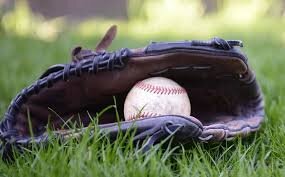By Beth Quinn
My father was always permanent pitcher in our backyard baseball games when I was growing up.
He got this special honor in part because no one else could pitch well enough to get the ball over home plate. If we had any hope of moving a game along at a fair pace, we needed him to do the pitching.
But he also pitched because, with one wooden leg courtesy of Adolf Hitler, he didn’t do too well in the field. Running after a fly ball that got hit into the cornfield out back of our Washingtonville home just wasn't his strong suit.
And so he stood under the hot sun throwing endless numbers of pitches to my sister, brother and me, while we took our turns at bat and in the field.
I never questioned the rightness of it. “Fathers pitch” was a fact of life I’d internalized without giving it any real thought. When I’d play ball in other children’s back yards, it always seemed odd to me that their fathers played the outfield and ran the bases. It was somehow childish, the way fathers were sprinting around out there.
Fathers pitched.
He ran our games with the authority of a Yankees team manager. He was boss of the field, and there were requirements if we wanted to play. We had to chatter in the outfield. I must have said, “Nobatternobatternobatternobatter,” 5,000 times growing up.
We had to stand properly, too, both in the field and at bat. And we always had to try to outrun the ball, no matter how futile it might seem. This was baseball, by God, and there was only one way to play it. The way the Yankees played it.
Going up to bat against my father was not exactly like playing T-ball. None of this self-esteem stuff for him, trying to make kids feel good about hitting a ball that’s standing still. It was perfectly fine with him if he struck me out, and he did it all the time. He never felt sorry about it at all.
“Do you want to play ball, or don't you?” he’d ask, if I began whining about his fast pitches.
I wanted to. And when I’d finally connect with one of his pitches – oh man – I knew I deserved the hit. I could tell by the feel of it. And I’d be grinning all the way down the first-base line. Then I’d turn around to look at my father standing on the pitcher’s mound. I’d watch as he took off his glove and tucked it under his arm. And then he’d clap for me. To my ears, it sounded like a standing ovation at Yankee Stadium.
Years later, my boy was to learn those same rules about baseball from my father.
“Grandfathers pitch,” was Sean’s understanding. By then, though, his grandfather was pitching from a wheelchair. Due to a surgery gone bad, my father had lost his other leg sometime between my childhood and my son’s.
But nothing else had changed. My boy was required to chatter from the outfield. He had to stand properly at bat and in the field. He had to try outrunning the ball, no matter how futile it might seem. And when he whined that the ball was coming at him too fast – my father could still get steam behind it, even sitting in a wheelchair – he got the ultimatum: “Do you want to play ball or don't you?”
He did.
Sean was 9 years old the spring before his grandfather died. They played a lot of ball that season, and there was the usual litany of complaints about my father pitching too hard.
“Just keep your eye on the ball!” my father would holler at him.
Finally, at one at-bat, he did. He swung the bat around and connected with the ball dead center. Then the ball headed back out where it had come from, straight down the middle. Straight and hard at my father. He reached for it, but it got past him. And in the process, his wheelchair tilted backward. In ever such slow motion, we watched him and his chair topple until he came down on his back with a thud.
In horror, my boy stood stock still halfway to first.
“You run!” my father roared at him from the ground. “That ball's still in play! You don't ever stop running!”
And when my boy stood safe at first base, he turned to look at my father lying on his back on the pitcher’s mound. He saw him take off his glove and tuck it under his arm.
And then he heard his grandfather clap for him.
